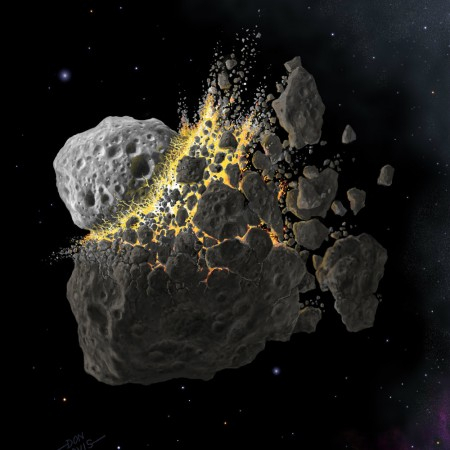
A few days ago, SpaceX founder Elon Musk claimed that no current technology in earth is capable to protect the planet from dreaded events like asteroid hits. The comments of Musk received negative criticisms from many corners, as it came at a time when NASA is busy building a planetary defense weapon to protect earth from asteroid hits. Exactly at that time the close approach of a deadly asteroid, happened on last summer has literally shocked doomsday mongers.
The incident grabbed public attention after Buzzfeed News obtained internal agency documents of NASA. The agency documents hint that the space agency came to know about the asteroid just 24 hours before its close approach. It happened in late July and the asteroid which had the size of a football field hurtled just 40,400 miles over Earth. It should be noted that this is the largest space rock that came so close to earth in the last hundred years.
"Because there may be media coverage tomorrow, I'm alerting you that in about 30 mins a 57-130 meter-sized asteroid will pass Earth at only 0.19 lunar distances," wrote NASA's planetary defense officer, in an email, sent on July 24 to other experts in the space agency.
This asteroid named '2019 OK' was barrelling towards the earth at a neck-breaking speed of 55,000 miles per hour. As per NASA experts, a possible collision of 2019 OK with the earth could have triggered localized devastation to an area roughly 50 miles across. Experts believe that impacts like these are estimated to happen in every 3000 years.
This is not the first time that NASA is missing out near-earth objects that pose threat to earth. On July 22, 2019, a small asteroid exploded above the Carribean and NASA had no idea that the rogue body was approaching.
Even though the space body that burned above the Caribbean was just three meters wide, skeptics claim that NASA has now turned obsolete and the space agency is not capable enough to protect the planet from future asteroid impacts.









